Personal Reflections Of South Auckland's Statesman
Personal and Political Reflections Of South Auckland's Statesman
By Selwyn Manning - Scoop Media co-editor.
Former Labour Prime Minister David Lange died at 10pm Saturday August 13 2005 at Middlemore Hospital in south Auckland. His brother Peter and son Roy were at his side. David Lange had been in hospital receiving dialysis after his kidneys had failed due to complications arising from an incurable plasma disorder, amyloidosis. He was diagnosed with the illness in 2002. Scoop Media's co-editor Selwyn Manning reflects back on what this remarkable New Zealander meant to the people of south Auckland, what difference he made to New Zealand, and what it was like to be in his presence.
All images courtesy of Jason Dorday (copyright Dorday and Manning: Freelance New Zealand 1996).
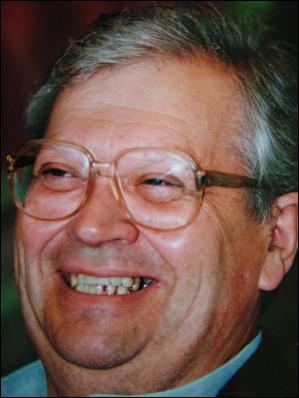
Rt Hon. David Lange.
On the eve of David Lange's
retirement from politics I spent a Saturday and Monday
shadowing him, conducting 'fly-on-the-wall'
observations and later holding one-on-one interviews
recording the former prime minister's reflections and
predictions as a new era in politics was ushered in.
It was 1996, and the New Zealand Parliament was about to face structural electoral change, reforming from the First Passed the Post (FPP) system to Mixed Member Proportional Representation (MMP).
I've often reflected on those interviews back in the 1990s, and pondered how one was left with an underlying feeling of privilege of sharing a few brief moments with south Auckland's big man.
As a journalist one gets to meet people and see things that most other people just do not get an opportunity to witness. In my case most meetings are mere windows in on a snapshot of people's lives, mostly via the false backdrop of a press conference and questions from the floor. These are chance fleeting glimpses of people like Vladimir Putin, Silvio Berlusconi, Henry Kissinger, Britain's Robin Cook, USA's Madeleine Albright, Bill Clinton and others. On all counts there is a certain something that they all have, but none compare to David Lange. When in his presence one had an awareness, a realisation, that you were in the presence of someone remarkable, someone with an intellect far in excess of any other.
His electorate office sat on a humble corner of Mangere Bridge's Coronation Road and Miro Street. It was a Saturday morning and there were no frills there, paint peeling off the window-frames and a few cars parked, a handful with children bouncing on the car-seats. Inside, there was a waiting room and a few seats filled by those awaiting David Lange's help - a veneered desk with a telephone and an empty chair. There were scones on a plate left there by Denise, David Lange's electorate secretary. She was making a cup of tea out the back. "Mr Honourable" as Lange's Pacific Islands constituents called him, was well known for his down-to-earth touch.
My memory of that day often returns in present tense: From behind another door there's a rumble of laughter - no doubt the result of a calculated wit - David Lange is concluding the end of a constituency appointment: advice, resolution and a gesture of generosity is discernable. Denise ushers me in and apologises for me being late.
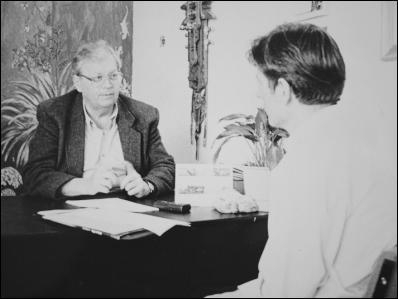
David Lange and Selwyn Manning (1996).
Back to past: Hanging upon a wall behind him was a photograph of the Labour Party's social welfare icon, Michael Joseph Savage. Slightly to the right was another: of David Lange. Beneath the black and whites sat the big man, larger than life. There was a polite welcome, a smile, a joke (at my expense naturally), followed by a response of slight unease as I pondered the complexity of the many layers of humour tucked neatly into another Lange throw-away line. This was the trademark David Lange that many had come to know.
That day, I was there to watch, to observe the politician going about his regular constituency clinic. As a representative, David Lange was proud that even while he held the high office of Prime Minister, he hardly missed an electoral clinic where he excelled in his role of elected advocate for the people of Mangere.
David Lange listened patiently to the complaints of his constituents, seemed sensitive to their feelings, he offered what seemed to me to be honest advice. He used a mix of humour and mana to ease tensions that inevitably flared. He de-charged a "potential H-Bomb" who had previously been discharged from the New Zealand Army's basic training for 'various reasons' (and later became notorious around Manukau for his private army ambitions). Lange later commented to me with razor-sharp wit that the skin-head's mother (who had been fixed to the angry man's side) was indeed the detonator in that explosive tag-team.
The last of the constituents left, and David Lange checked through his notes - later handing them to Denise (his electorate secretary) to be 'actioned' and followed up over the coming week. Another pot of tea was brewed and he readied to reflect.
David Lange began his professional life in the 1960s as the underdog's legal advocate. In 1977 he entered Parliament, nine years later he sat and considered his lot with suspicion.
His experience challenged those ideals that he held close - ideals like loyalty, social justice, and progress for the betterment of people. From this position at the end of his Parliamentary career he tested the rhetoric and considered the standing of the oratory, an art he said was necessary if Parliament's theatre was to have effect and purpose.
And MMP, Lange eyed it too with suspicion.
He understood why we voted for it (a public tired with hidden agendas, bitching and mind-numbing childish retorts) but wondered if the voters' message would be wasted on his colleagues.
If MMP was to be based on fairness, then Lange wanted nothing of it, he didn't enter Parliament to be polite to his opponents, he became an MP to "slaughter" them: "I didn't enter to be fair to them!" he said.
Lange said the challenge fuelled his debate: passion, a blood on the floor-styled sportsman armed with his words and mind, gifted with a sharp retaliatory instinct that matched the very best opponents that New Zealand's political arena could produce.
Let's shift back to recollections of live Parliamentary radio broadcasts from 1981-84. So often the game was between two main opponents - Lange in opposition and Robert Muldoon as incumbent National Party Prime Minister.
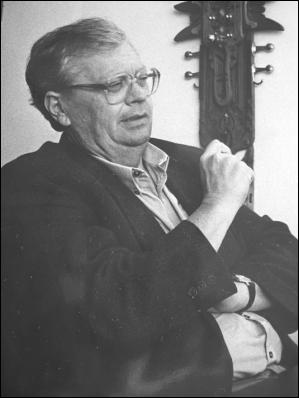
I remember these
debates in black and white terms - there were the words that
stood up for what we were. I was embedded inside an
engineering factory at the time - the smell of molten steel,
sizzling welding electrodes, and a feeling of desperation
when counting down 9000 apprenticeship hours. We apprentices
would often amuse ourselves while working; listening to
Lange's jibes lobbed from his Labour frontbench over to
Muldoon at the helm on the Treasury Benches. It seemed each
barb was designed to divert Muldoon's attention away from
the particular policy's purpose and onto consequence, and
then to lure him into personality politics. It all made for
great theatre.
Back then our urban New Zealand was married to industry where factories were divided into factions. In my experience it was: pro-tour/anti-tour, pro-nuke anti-nuke - 65 men who knew where the dividing line was and readily identify why it would not be crossed. It was us and them workshop politics, the unionists and the bosses. Big factory heavy industry was not a place for Rob's ordinary bloke. In these factories we fought for safety-guards to be fitted over steel polishing machines so as to prevent one's overall sleeves from being caught in the pulleys; guards to stop carborax (a wax based compound) from blackening your face and from being inhaled in quantities that suppressed your cough; we fought for proper eye protection to minimise arc-eyes; and for ventilation, for more than a 'pint of milk' to minimise toxic poisoning that inevitably bit in the night after welding galvanised iron for weeks on end (breathing in that zinc oxide gas caused your lungs ache as if compressed in a body-vice, and at night a tremor, caused by low-level poisoning, prevented you from raising a cup of tea to your lips).
Muldoon was just a Tory to us, Lange was on our team. He fought for the underdog.
I'd seen it myself way back in 1975, after my best-friend had been run over in a hit and run 'accident' outside south Auckland's Thoroughbred Tavern. A group of us young teens would ride the train most nights in from Takanini to Middlemore Station and make our way up to Ward 20 to visit our friend who was trussed up in traction.
I remember noticing this huge man visiting people there at night. The memory is still vivid, this enormous man, impressive, who filled the room with his voice and presence, standing beside this aged man who was pinned within a strange circular rack-like apparatus that could be rotated.
One night, I leant over and asked: "Hey, who is that guy?" My friend replied: "I dunno, some guy from Otahu (Otahuhu), he comes in here and visits old people who don't have visitors."
That was the first time I'd seen David Lange. And later I learnt he came from where we came from, and later again I learnt what drove him to represent us - Some would ask why would he want to. Some would answer: "because he could".
Later, as leader of the opposition, David Lange began to voice how New Zealand ought to be culturally, and how it ought to be seen on the world stage. The nation had endured nine years of virtual totalitarianism under Muldoon and Tim Finn's song: There's A Fraction Too Much Fiction was a hit on our radios. It was the first time I had heard the word consensus. Such terns were not used in our household, nor in the homes of my friends. Listening to Lange was an education for us and many nights would be spent looking up words that were heard on the radio, scribbled down in phonetics, in the factory on a bit of cardboard using an engineer's pencil.
And with a spin of the dial on Tuesday, Wednesday and Thursday afternoons could be heard the two of them, Lange and Muldoon debating hammer n tongs. The attacks were dark but never dull - like Lange saying of Muldoon in 1984: "I wouldn't call the Prime Minister gutless. That's all that's left of him."
And suddenly, in those factories was conceived a belief that any of us could take part in shaping this country's recovery. Why? Because Lange said we all had a part to play - even Muldoon. For some of us young south Auckland youths, we would have done anything if Lange insisted it be so.
That was the politics and that was then.
David Lange's chance
at politics had been a long time coming. During my feature
interviews with him in 1996, as he sat in his electorate
office and reflected, his hands swept the room: "As a boy,"
he said "I listened to Parliament for many years. All
through my intermediate school and secondary school years
and beyond I used to sit up until 10:30pm Tuesday, Wednesday
and Thursday and until one o'clock on Friday - the debates
were rugged, it was worth listening to them!
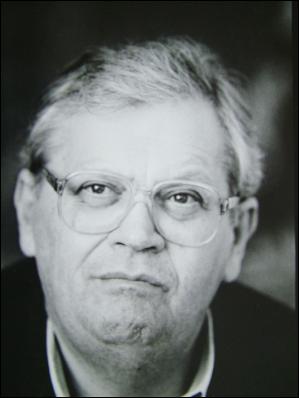
He rested back
against his seat's back-support: "You would have to be
deranged to listen to them now!" His hands returned to the
tabletop. His fingers interlocked. "I can't listen to them
now."
"But back then New Zealand Parliamentary speeches were really striking. I was inspired to work in that forum, it was a really exciting thought.
"I once held a wire-wove (from a bed) against a radio in Kaikohe so I could hear a budget speech.
"But today, there are many speakers in Parliament who would be struck dumb if you took their glasses away from them. The caliber of Parliamentary candidates is very very poor. They can't speak. They can read after a fashion. But when I went into Parliament you were not allowed to read. You had to speak. That was so they knew it was you and not someone else who wrote the words.
"Theatre is very important to the human condition. It is not about reason. It is not about rationality. Politics is irrational. Politics is about human beings with their frailties and perversions and distortions or perception, who prioritise things according to their conviction. I didn't go into Parliament to be fair to my opponents. Quite honestly I went in to jump on their windpipes!"
He said Parliament had become a "touchy feely" atmosphere that no longer resembled the arena he entered.
"Recently, I had to make a special speech in The House on the law of the sea. There were four Members of The House, no members of the press gallery. This is 4 o'clock on a Wednesday afternoon. You do not make souring Parliamentary addresses when you are surrounded by empty seats. You may as well be in a cowshed in Waiuku!"
The comment demonstrated his realization of how his time had been pulled from under him, of how the whims of politics and party factionalism, like a thief that steals one's most loved possessions, tears from one's grasp the opportunity to satisfy an inner-most-held passion to complete the job and to achieve one's potential.
"With MMP we are told we have to be fair to one's opponents. That is not the way. They can go and get stuffed as far as I am concerned!"
David Lange emerged from an urban south Auckland where working men ruled the roost. Otahuhu's railway workshops employed 1600 men. Each night they would return home with a bundle of firewood bound on the back of their pushbikes: "The rest of them worked at the freezing works or the brewery. A lot of them lived in railway houses."
He remembered how his friends all lived in houses where "when you opened the front door you could see out the backdoor, with a coal-range on the right-hand side and a photograph of Michael Joseph Savage overseeing the whole show on the left."
In those days, David Lange said, everyone did the working class thing: "Knew when to work, when not to work, when to go on strike, when to listen to their union, when to vote. Knew how to vote!"
"We grew potatoes in orderly rows - helping the British get over their war. My family packed fat into muslin bags and sent it off to Britain - we helped kill generations of Britons not just with our lamb and butter, but with fat!"
He roared with laughter.
His early memories were of "scrounging" chewing gum off American soldiers based in Auckland during World War II while New Zealand's men were off fighting: "And the old railway line. We were put in the back of the family car and driven to watch the Express go past - belching steam and roaring away. I'd just sit there on the bank where the Otahuhu Bridge is now."
David Lange was born to Roy and Phoebe in 1942. His father was a doctor who lived by socialist ideals - generosity. He'd barter for his services rather than charge the doctor's rates of the day.
"We were feeding crayfish to cats," David Lange said. "My father was of the Labour tradition. My grandfather formed a branch of the Labour Party in 1917."
He remembered going with his "elders" to Labour Party meetings, seeing the railway lines reflect a golden yellow as he and his father traveled over Otahuhu's Kaka Street over-bridge. But inevitably, his world changed. Gone now are the railway workshops, all but one of the freezing works, the photographs of Michael Savage on his friends' walls. The Intermediate school that he attended has gone up in flames. The spirit that drove Otahuhu College students to achieve remains however. His peers included: Waka Nathan, Murray Halberg. Of course David Lange was never a rugby player of note, nor an athlete. His sport was a game of the mind. With a great intellect and rhetorical prowess the young David Lange, perhaps due to a loneliness pressed upon him for his size, developed the foundations essential to become the best orator this country has produced.
He left school and began working at Westfield freezing works' fellmongery "the most profound moving experience of my life" he told me in 1996.
But it paid for his own Auckland university education where he graduated with a Bachelor of Law. He was admitted to the Bar in 1966, worked for an Auckland law firm: "We acted for the union, the dissenters, the literati, the intelligentsia, protesters against the Vietnam War, strange people, poets, writers, sculptures, Barry Crump!"
From there David Lange went abroad, sampled the exotic sights of India, traveled to Britain, met Naomi and later in 1968 Naomi and David married, then returned to New Zealand and settled in Kaikohe.
"We had a rumpty sort of practice, spent a couple of years up there."
Naomi and David then returned to Auckland where he returned to university where he studied and graduated as a Master of Law with first class honours in criminal law, criminal behaviour, and medico-legal problems.
After this, David Lange became famous around south Auckland as a defence lawyer, was defence counsel for a couple of murder trials "represented just about every crime on the books".
Like his father, David Lange did not always charge his clients. When he and Naomi had their first child Roy, money was tight. David took a broadcaster's role on 1ZB Hotline: "They wouldn't let me use my real name so I took on my mother's maiden name Reid."
He swapped shifts with another man calling himself Bruce Christopher: "Years later we both came out of the closet, myself as Prime Minister and Christopher as privacy commissioner Bruce Slain."
David Lange first stood as an Auckland City Council candidate in 1975 but lost. The same year he stood for Parliament in the Hobson electorate for Hobson. He lost.
But changes in south Auckland were in the wind and it was proving to be a fertile ground for a new breed of Labourite.
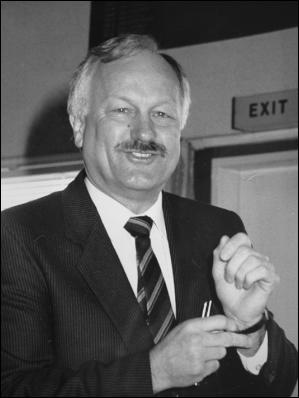
Roger Douglas.
Roger Douglas coached a
Manurewa schoolboy soccer team, his brother Malcolm coached
the Manurewa Marlins rugby league team (within which this
Scoop Media writer played in the lock position). And David
Lange was often seen visiting the lonely and elderly in
south Auckland's Middlemore Hospital.
Lange's chance came in 1977 after Muldoon ruined the career of Labour's Member for Mangere, Colin Moyle. Moyle resigned his seat after the politically broken MP had suffered attacks from Muldoon over his private life. Muldoon had accused him of being homosexual and at that time homosexual acts were against the law in New Zealand.
In an ironic twist Muldoon had caused Moyle's resignation and opened the way for Lange, the man who was destined to become Muldoon's most formidable adversary.
After a hard fought nomination fight, only one National Party candidate stood in Lange's way. Clem Simich was standing for the seat too.
"In those days Mangere didn't have buses going through it, many didn't have cars that worked, but there was always the tell-tale parts of broken down vehicles all over the road where the kids had been playing.
"National decided to impress by sending in a motorcade. There came Clem. He swept through in a Rolls Royce with a Bentley in behind.
"I said 'Go around Clem, go around again!"
David Lange roared into life, arms waving, excited at the punch-line of his account.
Of course, he became the Member for Mangere. He promised to listen to his people, he became the deputy leader of the Labour opposition, attempted a leadership coup over Bill Rowling in 1981 but proved unsuccessful after Rowling cast his vote in favour of himself. David Lange became leader of the opposition in 1983.
Roger Douglas along with David Lange, Michael Basset, Richard Prebble and Mike Moore were duped the "Fish and Chip Brigade" Labour's new wave of neo-liberals. But underneath all the team perception, David Lange held social-fairness ideals - values that made him uncomfortable during his prime ministerial years but ultimately set him aside from his contemporaries.
Lange said to me: "Yes he
(Muldoon) was a great opponent. Where would I have been if
it wasn't for him? You have to consider what the divine
roulette has dealt. I've had a couple of nice draws. One of
them was that I was Muldoon's opponent."
They sparked off each other, the electricity peaking during the leader's debates of 1984. By the end of the programme Lange found himself assuring an obviously beaten Muldoon that there would be a place for him after the election.
In his book Cuttings David Lange recalled the moment: "'I love you Mr Lange,' he said, and as the lights dimmed the tears of the most solitary man I ever knew ended a programme I have never looked at again."
Finally after a landslide victory, David Lange became New Zealand's youngest ever Prime Minister at the age of 41.
It was momentous. Gone was Muldoon's totalitarian style of leadership. Lange ushered in a freedom that heralded a revolution of sorts.
"It wasn't long before we realized things were not what they seemed." Lange's Cabinet took hard measures to combat the realities of hard times. What the Fish and Chip Brigade inherited was an economic shambles. Outgoing prime minister Rob Muldoon had cocooned us from the realities of financial collapse. As a nation, we wanted him to. We lived on borrowed money - on overdraft, and in time the money and time ran out for Muldoon.
Immediately after the election, Lange's incoming finance minister Roger Douglas had, perhaps naively, indicated publicly that he would devalue the dollar and speculators began a run on the currency with devastating economic effect.
Muldoon refused to take advice from Treasury and the Reserve Bank, and refused to be instructed to devalue by the incoming government elect. The stand-off created a constitutional crisis. Eventually, Muldoon gave in after his deputy Jim McClay argued the consequences should he continue to refuse.
Lange's government soon embarked on floating the dollar, freeing the labour market, farmers were told to diversify and to no longer be reliant on government subsidies. Unshackled, Auckland's economy heated, cranes were seen on the skyline, prospectors of New Zealand's new found market freedom became fat overnight - for a time.
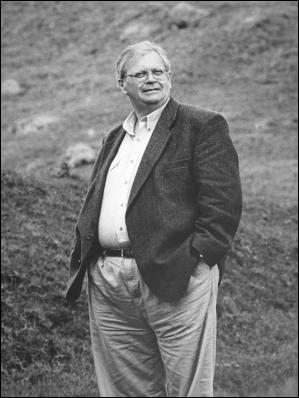
It was a time
of hard measure and hard decisions - if farms were not
profitable they sank, if businesses could not compete they
were bankrupt, if businesses could no longer afford the cost
of market competition then workers were laid off.
Unemployment continued to rise, businesses collapsed and
freezing works closed. The affect of the Lange government's
economic reforms was being felt in south Auckland and at
home in Mangere.
David Lange saw it and he felt it.
The rate of reform sent New Zealand into a frenzy: "If we had gone into office at the normal time without controversy we still would have won the 1984 election. But we would have had a short session in government, congratulated ourselves, got the ministerial cars, returned in March/April with a conventional Labour budget.
"But that wasn't to be. And then we hit the deck trying. After that it was a matter of survival. People even today say that we shouldn't have done it. It is all very well for them to say this, but there were times when I believed there was no alternative. Then again other people sometimes dressed up events so there was no alternative."
After the 1987 election David Lange began to retrench into his electorate, he could no longer advocate the far reaches of Rogernomics: "It also reflected being a political realist, and then we didn't have a cup of tea and look at what has happened to us (regarding the excesses of National's finance minister Ruth Richardson and her policies that were rolled out in the so called 'Mother of all budgets' in 1991).
But back in 1987 Lange had called for a "Cup of Tea".
"We swept the crumbs up, but we were dog tucker. Absolutely slaughtered. And we led ourselves to the slaughter because we pursued a campaign of reckless ideological reform long past the time when it became obvious that it was necessary.
"You see where I grew up, and the background I had with the experience of politics, it wasn't a communist analysis, it was almost a Marxist analysis. You think there would be a reaction against particular oppression. That is what I always thought, that people would take so much and then it would burst.
"But it never burst! It has always been contained."
Could it have burst? I asked.
"No I don't think so, no.
"I was in India years ago, and there was a pregnant woman who was clearly deranged. She was in a third-class waiting room - I was in it - she was very disturbed and it was pouring with rain outside, and they were doing construction, she kept on tying things in her sari. Little scraps and things. She had nothing of value but she knew she had to gather something. It was dreadful. It hurt me to watch her.
"Then a cop came along with a big stick. He hit her! I got up and started to make for the cop! He sort of backed off, and she ran away. She went outside and she picked up a rock. I thought 'you little beauty!' She thought about it, put it down and then ran away.
"It is just like that still."
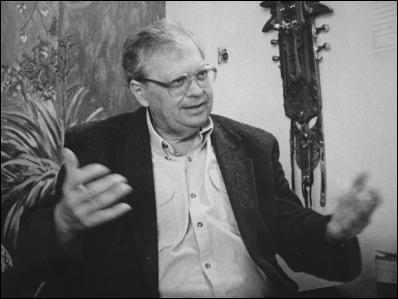
Mangere had pained through 12 years of economic reform, it had not erupted into riot nor gone up in flames. Crime had increased, the health status of the community had sunk. It had suffered. But it did not revolt.
The reason? "To the development of the national family which has long been practiced by Maori and by the age-old notion of the church and Aiga practiced by Pacific Islands people.
"It held together. I was here every weekend that I possibly could. Very few weekends was I away. I used to make a practice of being exposed around the place. I always walk through supermarkets, I know every shop, supermarket, 3 Guys and what is it now called? Countdown. And I still do that. I have been to Big Fresh this weekend and I have been to the one over in Balmoral.
"But people don't like being some sort of human vivisection experiment. Roger Douglas learnt that. It is only two years ago that he announced he would get more than 50% of the vote at this year's election (1996).
"Now he is talking about leaving ACT the very party he started!"
He laughed.
On Richard Prebble he said: "People remember. They see these photographs of these guys and say 'No no, he's not an Iranian meat negotiator he's the guy who took my job and my super, and my house, my farm!
"When it was necessary people went along with it. But all this flirtation about selling roads and selling hospitals, and selling everything else it is just tripe!"
The hurts and mistrust of nine years of politics had taken its toll. It was clear the wounds from the 1987-90 years had not healed.
From his Mangere electorate he looked out the window and paused: "The Australian Labour government knew when to take a breather. They were in office for 13 years. They hit hard times then they picked up the pieces and started again.
"But not us. Oh no, we were in top gear, overdrive, turbocharged then we hit the wall!"
Any regrets? Yes he had them, for all who voted for Labour believing in social ideals and got capitalism proper. But he balanced this with recollections of great times. For the first time a New Zealand statesman stood tall on the world stage and spoke of a peaceful place that refused to be dictated to by northern hemisphere militarist ideologies.
There was also the nuke-busting African reconciliation tour (patching up relationships on the continent after the 1981 Springbok rugby tour of New Zealand). There was the Oxford debate, pulling out of the ANZUS Alliance, his hardline position against France after it bombed the Rainbow Warrior in Auckland Harbour, the visit of India's prime minister Rajiv Ghandi, Lange's address at the 40th anniversary of the formation of the United Nations where he told the world we did not want its Cold War nuclear race.
He reflected: "If you look at the world and draw our hemisphere around Auckland it only just touches north America and South America - just a little bit. It takes in the whole of China, back over through India, and just touches bits of Africa. It takes in all the dragon economies, takes in Indonesia the biggest Muslim state in the world, takes in the huge arid masses of Australia and Antarctica, the little island states of the Pacific.
"The funny thing about our world is there are about 3.5 billion people in it, and there is only 21 million people in it like you and me. We have never come to terms with that. We can't grasp that we are the minuscule minority.
"Perhaps we have to recast our thinking so that our geography becomes our destiny. To a lot of extent between 1984 and 1990 New Zealand did re-orientate itself because we decided that there was an insanity about the nuclear arms race and that we did not have to follow north America or European dictates.
"You would have thought after 150 years of settlement this may not have been a radical thing. But it was far more than a good percentage of the New Zealand population could cope with.
"One of the good things about that time was I was able to be sustained in it because I lived in south Auckland. If I had lived in a place like Napier or Nelson or Oamaru, I'm not sure I could have sustained it emotionally, what we did. Because they have and had a different view of the world; essentially Eurocentric and north America related.
"Yet in Mangere 45% of this area is Pacific Island. There is a huge bulk of Maori people. Mangere Intermediate has 412 kids who I think one is European.
"So it becomes easier to become different. And
simply because we were different, our stance was not
revolutionary, we were not remarkably different from the way
Malaysia does things or the way some other countries do
things. But what was different was we were the ones who were
doing the doing - and that was a revolution. That is why it
felt so different, so challenged and leaned on. And we were
leaned on. Definitely leaned
on."
The Oxford union Debate
I asked him of the Oxford Debate and his famous off-the-cuff line "I can smell the uranium on your breath as you lean toward me".
He thought deep. Smiled. He looked miles away. "Yeah, Mmm." His contemplation was held for a moment.
Then - "The Oxford Debate was an example of how different the times were. It was no secret that the New Zealand government's position was of grave concern to our own foreign affairs ministry. I had a trip to the United States and to the UK which is the usual beat for New Zealand prime ministers, without a single person from foreign affairs accompanying me. It was the first time a New Zealand prime minister ever left New Zealand under such conditions."
In effect, the foreign affairs officials had deserted him.
"They wouldn't come anywhere near me! (laughs) I was a terrible embarrassment. I was going to upset the cocktail circuit no end. Anyhow, I went. It was a gamble. It could have been the last thing that I did as a prime minister. Then I was advised not to do it (the Oxford Debate). Margaret Thatcher sent her high commissioner to ask me not to do it - then I was determined that I would do it!
"But it nearly didn't come off. Because Jerry Falwell discovered, when he got to London in his private jet, his topic was something that he thought to oppose."
Falwell, Lange said, had gone to London to shoot down this "Atheistic Communist Lange" only to discover to his horror that his great hero Ronald Reagan had uttered that 'Nuclear weapons are defensible".
"He only just made it to the post and Jerry wasn't in his best form that day - it is a bit unfair to him that. He is not as bad as he appeared in that programme."
It was a shining hour in David Lange's life.
But back home his Cabinet was becoming unhappy. Eventually, it pulled itself apart. National was returned to power in a landslide victory in 1990.
Memories
It was 1996 - the middle years of National's new right ideological reform.
Health reform was a central plank of National's efficiency agenda.
I had been leaked documents from an individual at South Auckland Health showing that the then health minister, Jenny Shipley, was intending to implement exclusion criteria into health policy - and one area that would impact on our region hugely was exclusion criteria for renal dialysis treatment.
Shipley had set up a body called the Core
Health Services Committee, chaired by Sharon Crosby, and the
committee was charged with examining how New Zealand could
move to a more affordable approach to costly procedures. The
committee recommended that exclusion criteria be implemented
for dialysis that would prevent people from receiving the
life-saving treatment if they were:
* Mentally ill
* Intellectually handicapped
* Having displayed anti-social behaviour
* Suffering from other complicating illnesses
* Aged 75 years-of-age or over - the list continued.
I wrote a front-page lead story breaking the news. Once published the Labour opposition kicked into gear, raising the issue at Parliament's question time and later expanding out the issue during an urgent debate.
David Lange stood up in Parliament and boomed: If you live in Southland and have diabetes and finally enter into what they call end stage renal failure you will get your dialysis. But if you live where I come from in south Auckland under this lot you will be met with a policy that stands on the tube, that is not an efficiency gain "There's another word for that!"
Later, Shipley stood staunch arguing that a south Auckland man who became the human face of her policy called James McQuin ought not receive dialysis treatment. Shipley went on the Holmes Show arguing why the man ought to be left to die from his condition. She identified clinical reasons for her argument. South Auckland Health's then CEO, Dr Lester Levy, returned from holiday to stand between the minister and his hospital's patient - Levy ordered that James receive dialysis. Shipley was later found to have breached James' privacy and was forced to make an apology. A year later I asked James how his extended life had been: "It's great he said, I enjoy my days, I have a flutter on the races, I'm happy." A year and a half after Shipley had argued that his treatment ought to stop, James slipped away feeling that his doctors at least valued his life.
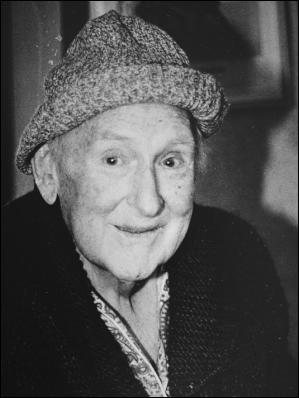
James McQuin.
National had clearly lost the debate. It backed off exclusion criteria and placed the onus on clinicians. It was a win for the people of south Auckland.
When interviewing him, I questioned David Lange of his predictions for New Zealand, what was the future New Zealand to be in the days ahead?
"Economically we will see much of the same. We are going through an awful transition and readjustment. By the time Edith (David and Margaret Pope's daughter) is tertiary educated New Zealand will have re-orientated. We will be much more prosperous. You see we were kept on life-support for too long. We came to reality in 1984. There is a whole generation of people, a year or two older than me, who hate what happened. They are the meat and three vege quarter of an acre section householders who were looking forward to an ever increasing pension and assurance. And it was taken from them. They are the people Winston peters made a million on. They are going, are fading. If you look at New Zealand there are a lot of things to be grateful for. We are starting to get on top of Maori aspirations, we have fundamentally got good literacy, a reasonable - in spite of hiccups - judicial system, a mostly non-corrupt police force. If you look at New Zealand by world standards this is an amazing country to live in.
"We have done badly at looking after each other. We are going to have to do much better than that. But that takes time. I would say by the time five elections are up we will see a party together which will roll back some of the injustices. It took the first Labour government 35 years to get a majority. It takes awhile."
And of his future?
"I'm going to write a lot more, lecture a lot more, do things - I'm going to be vice-president of New Zealand Rugby League, it is quite exciting!"
Will we see another Lange in politics?
"Oh, I don't know about that."
What about Roy?
"Roy is far too sensible to do anything like that. Yeah." He laughed long. "Much too sensible unless it is in India. Yeah, but he wouldn't have that. No, Roy is not going into politics, Byron's not, Emily certainly is not. Edith might, but that would be 2020, yeah!"
David Lange was always an emotional man with an amazing memory for people and their names. He would remember circumstances and situation beyond belief. He was happy, and he swelled with the thought of being with his daughter Edith.
He leant forward and said: "I will be fully occupied. Now put that thing down and lets have a cup of tea!"
2:52pm Thursday August 22 1996: Throughout his valedictory Parliamentary speech the sun shone warm through my curtained framed room. The radio played his delivery live. It was exhilarating, exciting, emotional, a lesson. He spoke of his new found life: "I look at Edith sitting in the cot and I think 'Gosh it is good to be up this morning. We are going to have a good day'. She will be up the hill in Karori, in her grandmother's arms, and one day they will play her the tape recording."
At that moment, south Auckland's statesman ended his Parliamentary career. And the sun dimmed lowly behind silver-cloud galleons sailing a broad reach above Manukau Harbour.
Sometime in 1997 I remember being telephoned while employed as the central government reporter at Manukau's largest circulation newspaper, the Manukau Courier.
The call was letting me know that David Lange was to be reading books to children at one of Mangere's primary schools. Would I attend? Absolutely. There was little news in it, but attending was a mark of respect.
David Lange sat encircled by year one and year two children jollying ecstatically while he added his own repartee to the storylines. His genius was that the teachers too were in stitches: "And huggy, who was an old friend of mine called Mike Moore, you might know him for being on the nappy packets where they call him - Huggies For Crawlers!" Laughter filled the room.
Later too, I realised the vulnerability of David Lange. After the reading he asked if I would join him and the teachers in the staff room for the customary cup of tea. There was a feeling, a hint of loneliness about him, and a realisation that perhaps he sought camaraderie.
A few years earlier he had been quite
closed off to me - a protection wrapping resulting from a
distrust of journalists. He had asked me: "Are you from
south Auckland?"
"Yes," I answered.
"Where from?" he
asked.
"Takanini," I answered.
"Arrrrr," he considered
"But you would be too young to remember Arthur
Falconer."
"No I remember Arthur because my mother knew
his mother."
From that moment he seemed to be more
tolerant of my questions and time demands.
Back again to the teachers' staff room, there were moments where he definitely looked awkward. Later over a cup of tea and malt biscuit he looked me up and down and on noticing he had a captive audience Lange bellowed "Good God Manning, where did you get those clothes? You look as bad as a teacher!" I bowed as if presenting at some sort of anti-social confessional, my eyes fixed down on my brother's half-mast trousers that I had donned that morning - I took refuge in the fact that with one sentence Lange had cast his master-comedian's spell where everyone was laughing while everyone but he was the butt of the joke.
Later he invited my partner and I to attend a speech he was delivering during an evening event at Kings College in Otahuhu. Absolutely. Something had happened and we were a bit late. I'd assured Angela that all would be ok and we would slip in the back. That proved impossible.
It was a full house and we found the Kings College principal hovering around the lobby gathering in the late comers - namely us. Beaming a smile he said: "He's a popular man isn't he. This way, I'll usher you in this door."
To our horror the door was for VIPs, and delivered us on stage before the whole auditorium!
"Come on in, take my seat!" he boomed "It's the best in the house!"
Angela was mortified to find a whole auditorium beaming down at her laughing at our expense - her baptism before David Lange's wit had been witnessed.
His oratory was exceptional - it was an hour-long rollercoaster humour ride that covered the world. I am sure Seinfeld would have been the supporting act to Lange that night. There was a moment when his speech-cards got muddled up. Lange fumbled and turned the butt of his jokes on himself, beaming at the brilliance of his wife Margaret's speechwriting talents and his ham-fisted attempts to reshuffle the cards into order.
On concluding his performance, he returned to us. Angela politely offered him his seat back: "No my dear," he said with an embarrassing smile "while rather large I should be able to fit into this pew next to you."
We felt honoured.
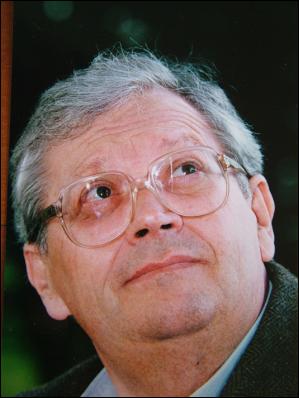
As mentioned
above, it was at Middlemore Hospital in 1975 that I first
saw David Lange. And it was also the place where I last saw
him, in July 2004. I was entering Middlemore to visit my
father who was recovering from an abdominal operation. There
was David Lange waiting just inside the doorway all alone.
He had been receiving treatment for his blood disorder and
was waiting for his wife Margaret Pope to drive the car
closer to the entrance/exit.
He greeted me with his smile as he always did, and we chatted about Scoop Media and foreign affairs. I asked him how he was doing on which he replied: "I'm doing ok, but it's a bit cold out." There was a shift inside me that said this was to be the last time I'd have the honour of speaking to Mr Honourable.
And today in our home, we will toast the passing of this man with a good hot cup of tea.
Kei te rangatira, moe mai, haere ra Mr Honourable.


 Binoy Kampmark: Catching Israel Out - Gaza And The Madleen “Selfie” Protest
Binoy Kampmark: Catching Israel Out - Gaza And The Madleen “Selfie” Protest Ramzy Baroud: Gaza's 'Humanitarian' Façade - A Deceptive Ploy Unravels
Ramzy Baroud: Gaza's 'Humanitarian' Façade - A Deceptive Ploy Unravels Keith Rankin: Remembering New Zealand's Missing Tragedy
Keith Rankin: Remembering New Zealand's Missing Tragedy Gordon Campbell: On Why The Regulatory Standards Bill Should Be Dumped
Gordon Campbell: On Why The Regulatory Standards Bill Should Be Dumped Martin LeFevre - Meditations: Psychedelics, Mystical Experiencing, And Organized Religion
Martin LeFevre - Meditations: Psychedelics, Mystical Experiencing, And Organized Religion Keith Rankin: Equity Rights - UBI, SUI, BUI, HUI, Or GUI?
Keith Rankin: Equity Rights - UBI, SUI, BUI, HUI, Or GUI?